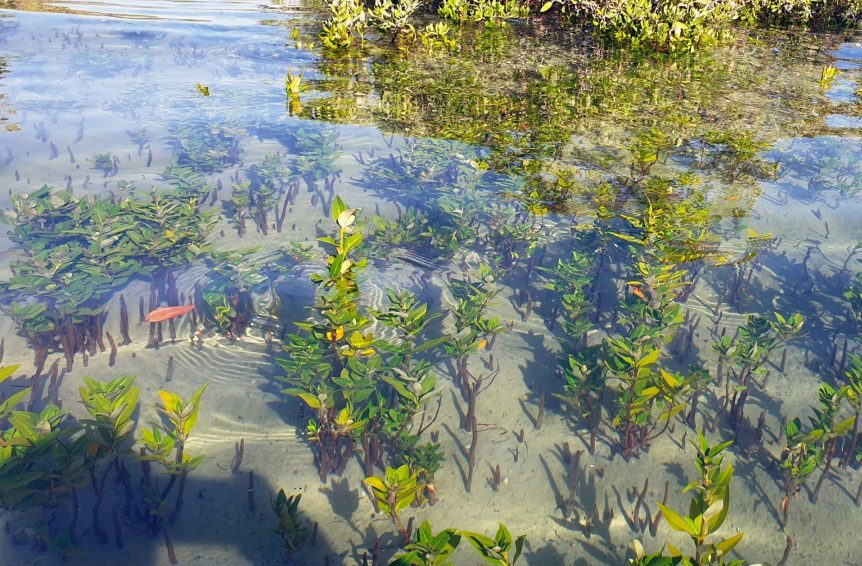A New Baseline for a Greater Collective Action
Climate Change

May 19, 2020, 8:03 am
By Ibrahim Al-Zu’bi, Chief Sustainability Officer at Majid Al Futtaim Holding
Over the centuries, humans have fundamentally changed the make-up of our planet. Our activities have caused global warming and the destruction of the natural world with farming, mining, and housing driving wildlife out of their natural habitats and into more contact with people. This activity has brought imminent danger to humanity, given that 75% of all emerging infectious diseases come from wildlife.
The Covid-19 pandemic is no different but it may have a favorable climate impact. The virus has resulted in the shutdown of most human production and transport activities, causing CO2 emissions to drop in several countries around the world. The Organisation for Economic Co-operation and Development has projected that CO2 emissions may decline by 0.3% -1.2% in 2020, and European and Asian cities have already witnessed a drop in Nitrogen Dioxide (NO2). This decline in pollution has had an immediate and visible effect on our environment with images quickly spreading on social media showing a “healing earth”.
Despite these positive signs, we are still running out of time and slowly losing the chance to stop irreversible and disastrous changes to Earth’s climate systems. Today, the UN estimates that the world has less than ten years to prevent a 1.5°C rise above pre-industrial temperature.
However, given the long-term nature of these numbers, climate change is treated, by many, as a danger whose effects are decades away. This view is, unfortunately, misguided. Its consequences are affecting hundreds of millions worldwide today, but it is hard to visualise our destiny in comparison to the short-term impact of Covid-19.
According to the World Health Organization, air pollution alone kills seven million people every year. To put that in perspective of today’s global pandemic, as of mid-May, almost 300,000 people have succumbed to the virus. However, and contrary to the virus, air pollution does not draw the same attention because it does not cause immediate deaths, and the media does not report the illnesses and mortality on a live, daily, basis.
As tragic as these past few months have been, the pandemic has already taught humanity crucial lessons that can help us curb climate change.
Our first lesson is how connected we are as humans. If one of us falls, we all fall. Human beings are neither immune to Coronavirus nor climate change. We are only as safe as our most vulnerable people. These challenges will require global collective action, and systemic changes, not only by governments or companies but also individuals. Similar to Covid-19, each ton of greenhouse gas contributes equally to the problem of climate change. Even if one country or continent enacts laws to curb this threat, there will be little benefit unless everyone does the same.
“Prevention today is critical; Covid-19 has shown this to us.”
The second lesson is that prevention is better than the cure. A 2012 report by the OECD, stated that implementing climate change mitigation measures sufficient for limiting temperature increase by 2 degrees would only slightly affect future economic growth compared to inaction. This threat is a minimal “prevention price” to pay, especially when considering the potential cure we will need for the impact of climate change. We might simply not afford it when the time comes. Prevention today is critical; Covid-19 has shown this to us.
The third lesson has shown us the power of having a global focus. If governments can take extreme actions to shut down workplaces and restrict movement, they can also take similarly drastic steps to change how we produce and consume energy. Measures do not have to be as abrupt or as severe, but coordinated, concerted global action is indeed possible. The Coronavirus showed us a level of global coordination that has not been witnessed before, whether it’s government, institutions or social networks. With similar actions, nothing is impossible. In this context, a critical fourth lesson is to trust the experts.
The fourth lesson is that we now understand how behavioural change is important for us to tackle global challenges. People have started working from home, reducing human interaction, riding bikes everywhere, and we have stopped handshaking. We have a better understanding of the consequences of our actions, and this presents a huge opportunity to shift our behaviour to a “greener” one too.
The last and crucial lesson is that we now have a baseline for what we can achieve. We now fully understand the power of technology and being online for meetings, education, shopping and many other activities. This realisation opens many future opportunities to address climate change.
Tackling climate change should not require a global shock that kills hundreds of thousands and leaves millions in financial and mental distress. The way we globally cooperate and respond to Covid-19 should inform how we address climate change, as this will eventually shape our future. The Covid-19 pandemic will pass, but it should be a wake-up call to all of humanity on how complex the climate challenge is, and how a greater global collective action is needed. We should not waste this crisis.










